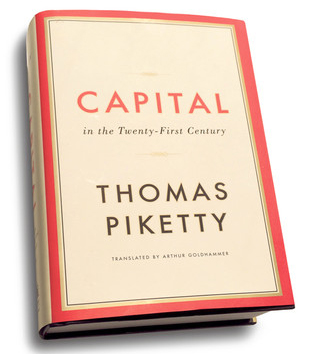“Africa is said to be the next frontier.”
Ambassador Adebowale Ibidapo Adefuye, Ambassador of Nigeria to the United States, stood before a room of close to 150 leaders convened at the Africa Forum, a half-day series of conversations designed to set the tone for the U.S.-Africa Leaders Summit that would take place in Washington, D.C., just four weeks later.
His Excellency Ambassador Adefuye was only one of five African ambassadors who graced the dais; subsequent panel discussions featured the opinions and perspective of Their Excellencies Dr. Tebelelo Mazile Seretse of Botswana, Faida Mitifu of the Democratic Republic of Congo, Liberata Rutageruka Mulamula of Tanzania, and Cheikh Niang of Senegal. Yet, in some ways Ambassador Adefuye’s opening remarks spoke for them all: “We in Africa don’t want aid any more. We want trade, and access to markets…. Sometimes we haven’t been able to get it right. But now we are determined to get it right.”
While some leaders from the United States and Europe have failed to hear it, in recent years, Africa’s leaders have changed their tune. The long-held stereotype of African heads of state pleading for increases in foreign aid has been replaced by requests for long-term investments based on partnership and mutual gain.

During his second official trip to sub-Saharan Africa in 2013, President Obama announced that he would be hosting the U.S.-Africa Leaders Summit in 2014.
“Give us the opportunity and we will prove our worth,” the Ambassador declared.
But these requests appear to have fallen on deaf ears in the United States, while other countries have heeded the cry, and responded to fill the gaps. China, India, and Brazil have quickly become major investors in many of Africa’s most promising frontiers: infrastructure, oil, natural gas, and telecommunications in Ghana, Ethiopia, Mozambique, and Kenya, among others.
America’s prominent absence in many of these new markets has finally gained the attention of U.S. government leaders. President Obama will welcome private and public sector leaders from across the African continent and the United States in early August with two anchor agendas: good commerce and good government. The Summit seeks to bring together heads of state alongside U.S. cabinet members and American and African CEOs for productive conversations that can rectify America’s absence in these critical markets, focusing on trade and investment in Africa as well as its security and democratic development. Yet, the Summit’s optimal return lies a layer deeper, in conversations that take policy to practical process with regards to long-term lending, opening of markets, and the resulting partnerships and opportunities they can deliver, all of which are inextricably linked to a renewed emphasis at the core of truly sustainable development: enterprise.
The Entrepreneur’s Fairytale (and Reality)
Since Mark Zuckerberg’s meteoric rise from Harvard dropout to tech superstar, it can seem as though the only requirements for a profitable business are a risk-accepting spirit and a good idea, but it’s not quite that simple. In subsequent years, many have sought to discipline the mystery of startup success. Now, thanks in part to people like Eric Ries and StartUp Weekend, incubators, accelerators, and entrepreneurs abound. The idea has grown in popularity to such a degree that it has even been used by large corporations, who seek to empower and promote intrapreneurs, individuals able to lead innovation and change within the context of a larger organizational structure. What’s more, social entrepreneurs insist that enterprise, not fundraising, can also become the driving force behind effective social impact solutions.
This trend has given rise to an industry of products designed to support these new ventures. Impact investors and venture funds have grown in size, scope, and reach. Every major metropolitan area in the United States boasts a number of startup incubators that can help new startups fail or succeed faster, creating linkages between ideas, funders, and the tech savvy.
In the United States and Europe, this startup culture has typically been focused on information technology; most recently, on developing applications for mobile devices. Innovation and its resulting products and services have had a transformative impact on individuals and industry around the world and, in more developed markets, entrepreneurs have come to be seen as the purveyors of innovation. This mindset, however, conflates entrepreneurship with innovation, where the distinction is critical—not all entrepreneurs are innovators, and not all innovators are entrepreneurs. For the most part, the demand for the enterprise needed to spur growth in Africa is of an entrepreneurial, not necessarily innovative, nature.
In many other corners of the world, being an entrepreneur is often an occupation of necessity. What national accounts reflect as ‘the informal economy’ is in fact an economy driven by entrepreneurs. In the face of high unemployment and limited schooling, those determined to feed their families make their living wherever they can, often in the world’s largest open-air markets—traffic intersections and roadways. In imperfect markets where supply struggles to meet demand, everything is for sale.

Ghanaian women smoke fish, preserving it to bring to market.
For visitors to developing countries, these impromptu markets are visible, risky, and fluid. Yet, what remain largely invisible are the poverty traps that underlie them. Many international economic growth pundits are quick to point out that enough natural resources, food, and opportunities exist to feed, clothe, and sustain the people of the world, but market inefficiencies, lack of capital, and inconsistent governance prevent this outcome. Inherent in such market gaps are poverty traps, whose physiological underpinnings are simple, yet stark.
Many types of poverty traps exist and have been chronicled in detail by the likes of Jeffrey Sachs, Paul Collier, and others. In the most basic poverty trap, an individual faces a circumstance in which she does not earn enough money to afford to buy enough food calories to meet her minimum daily caloric consumption, much less enough calories to support an active lifestyle. Under such circumstances, many struggle to maintain even a subsistence livelihood, and holding a manual labor job—often the most available employment—is completely out of the question. In such cases, starting a small business selling a hand-made product or a simple service is the most efficient and feasible means by which to earn a living.
Capital and the Promise of Enterprise
Leaders around the world proclaim the power of small business to drive economic growth, and there is good research to back up the importance of small businesses to provide communities with employment as well as services, enabling their owners to work as little or as much as they desire, and reap the corresponding returns.

A banker discusses financing options with a small business owner in Mozambique.
This trend towards entrepreneurship has coincided with efforts to ease the credit constraints the poor face. Starting a small business without cash on hand is a challenging proposition. Since the mid-1980s, Muhammad Yunus has sought to create access to finance for the poor through micro-financing mechanisms at the Grameen Bank; in 2006, his years of effort were recognized when he was awarded the Nobel Peace Prize. Since then, microcredit has waxed and waned in perceptions of its efficacy, but the imperative that even the world’s poor require access to finance is here to stay.
Tilman Ehrbeck, the CEO of CGAP, the Consultative Group to Assist the Poor, insists that the ability of small business to lift the world’s poor out of poverty is overstated in the absence of reliable infrastructure. In the United States and Europe, many small businesses operate in a preferential environment, with tax breaks, protected contracts, and extensive resources that incentivize small business. In emerging markets, access to financial services, including bank accounts, credit, and insurance is often unavailable.
The call for financial inclusion grows stronger by the day, as leaders across Africa and around the world realize its critical implications for the ability of business to shape the opportunities of tomorrow. Yet neither access to financial services nor the enterprise they enable is a panacea, and much remains to be understood about successful systems of sustainable commerce. In one randomized study in Malawi, only 33 percent of those offered a loan with which to begin a new crop of hybrid maize and groundseeds took the loan. What’s more, when offered the loan along with crop insurance, just more than half as many—17.6 percent—took the loan. Of course, the findings of this randomized trial may not be relevant to every market, but the implications are clear. In developed markets, the benefits of financial services are known and appreciated. Yet, in less developed markets where scams are common, savings, insurance, and credit may be met with skepticism, as too-good-to-be-true. Overcoming these cultural obstacles requires not only making these services available, but also educating communities about their value and reliability.

This spring, Thomas Piketty made headlines in the United States with the release of the English translation of Capital in the Twenty-First Century. Piketty, whose book quickly jumped to number one on The New York Times bestseller list, has compiled extensive and compelling data with which to more factually and accurately assess the historical trends in the realm of economic growth and inequality. His research suggests that today, much like in the 19th century, we confront a world in which the rate of return to capital—infrastructure, investment, and savings—outpaces growth in both economic output and individual income. In such circumstances, “capitalism automatically generates arbitrary and unsustainable inequalities that radically undermine the meritocratic values on which democratic societies are based.”
Piketty convincingly describes a global economy of ‘supermanagers,’ in which the top decile of earners grows richer, their wealth compounded by the fact that they reap the returns of both capital and income. The unspoken corollary to Piketty’s conclusion is that becoming an entrepreneur is perhaps the only road to ‘supermanagement’ for many of the world’s poor and middle class. With limited opportunities for employment and even scarcer chances for professional development and promotion, creating a small business—whether it be to enable the sale of sausages, saris, soap, or services—is the fastest path to accruing capital in business infrastructure and savings… and income.
Back at the Africa Forum, Rick Angiuoni, the Director for Africa at the U.S. Export-Import Bank, eloquently framed the two greatest challenges facing Africa today: sustained economic growth, and poverty reduction. Africa, a continent of 54 different countries, each with a different historical legacy, and each with multiple languages and cultures, is a highly heterogeneous place where barriers to progress abound, and no solution is one-size-fits-all. “How do you transform potential into opportunity?” Angiuoni asked.
By empowering more entrepreneurs, governments and investors alike can enable the creation of more capital-generating entities that accrue wealth to more individuals, mitigating the effects of economic inequality. What’s more, the financial systemization that results from more powerful enterprise only reinforces the fact that business really can do extraordinary things.
Alicia Bonner Ness
Alicia Bonner Ness (@AliciaBNess) is the editor of the The New Global Citizen, where she seeks to showcase the impact of beneficiaries and implementers alike, empowering all those engaged in furthering social good to learn from one another. She is also the Communications Manager at PYXERA Global.




